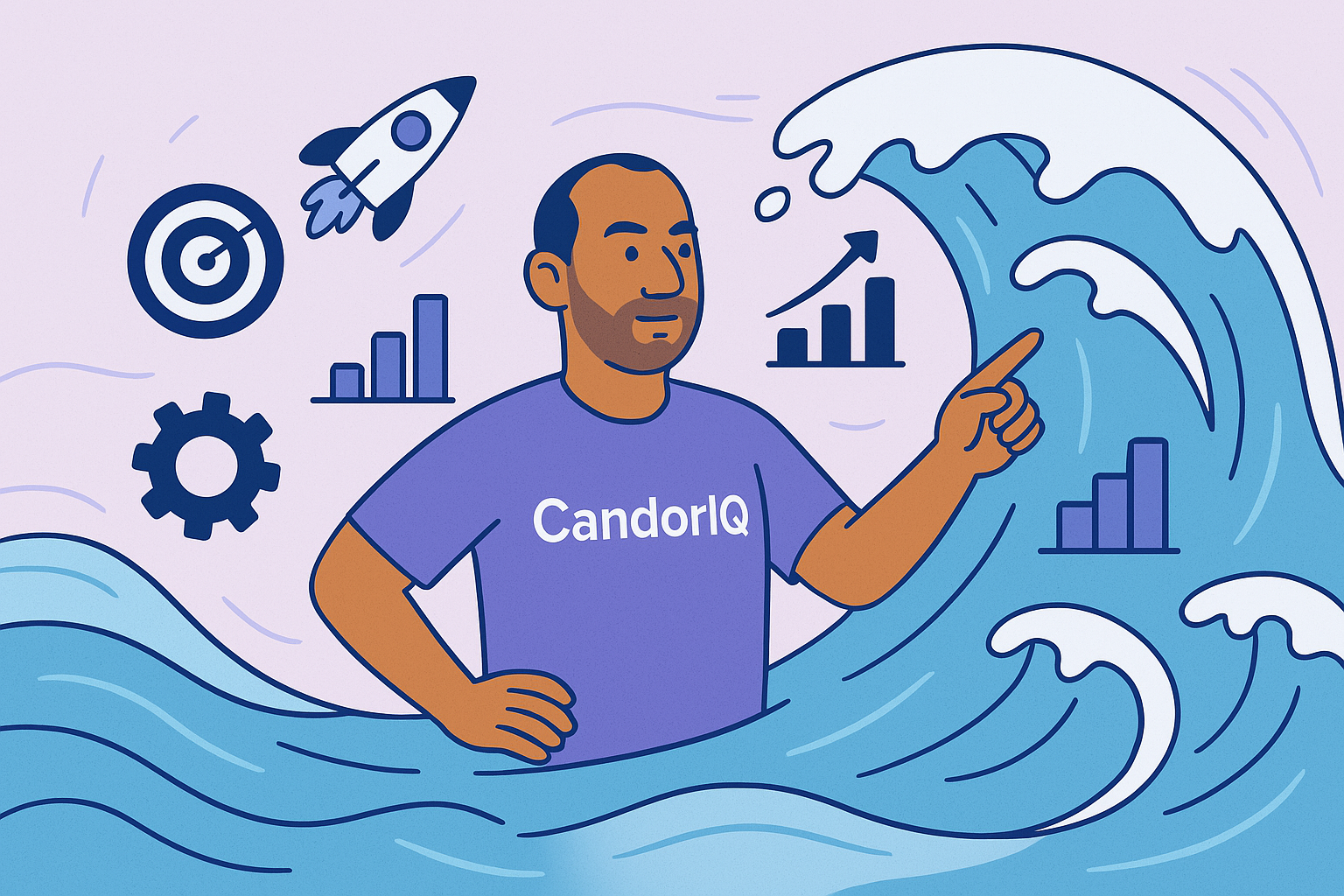The AI Tidal Wave: Rethinking Productivity, Performance & Pay
How AI Will Reshape Work as We Know It—And What HR Must Do Now

When a memo from Shopify CEO Tobias Lütke recently leaked, it offered a rare glimpse into how one of the world’s most innovative companies is thinking about the role of AI in shaping the future of work. The takeaway? AI is not just a tool—it’s a tectonic shift that’s forcing companies to reimagine how they work, manage people, and design compensation.
Let’s break down what this means for HR and management leaders, and why this moment is a wake-up call. Spoiler, here’s my take: HR & leadership need to lead the charge on all the internal change management.
Productivity Is Being Redefined
AI is accelerating what employees can accomplish. Routine tasks are being automated, decision-making is faster, and creative output is reaching new heights. McKinsey estimates that generative AI could automate up to 60–70% of employee time in certain functions like marketing, software development, and customer service.
This means productivity expectations will evolve—fast. High performers may achieve even more. Underperformers may be left behind. Organizations must rethink what “good” looks like and calibrate accordingly.
Performance Metrics and OKRs Must Evolve
If productivity baselines shift, then employee KPIs, OKRs, and performance reviews have to shift too. Teams will need more nuanced metrics, ones that factor in AI usage, creativity, collaboration, and adaptability.
AI will also impact managerial expectations. Leaders now have to evaluate how well teams leverage AI, not just what they deliver. This shift requires better performance frameworks and tools—not static annual reviews or outdated dashboards.
Career Ladders Need an Overhaul
AI will render some skills obsolete while making others exponentially more valuable. Skills like problem-solving, digital literacy, and interpersonal communication are rising in importance—even as technical execution is increasingly supported by AI.
Companies will need to revisit job architecture, promotion criteria, and learning paths. Career growth will depend less on tenure or rote output and more on how employees evolve alongside technology.
Traditional HR Tools Are Obsolete (& Limiting)
Most HR systems were designed in a pre-AI world. They assume static roles, linear progression, and manual input. But the AI-enabled workforce is dynamic, adaptive, and fast-moving.
From performance reviews to compensation design, we need tools that can keep up. At CandorIQ, we’re building intelligent compensation systems that reflect this reality—tools that are agile, data-informed, and integrated with broader talent and performance signals.
One of the biggest limitations of traditional HR tools is the time and complexity involved in using them for even standard processes. This friction limits how often companies can realistically run critical practices like compensation cycles or performance reviews. Most organizations conduct these once or twice a year—but that cadence doesn’t match how people actually work or grow. If someone is underperforming or exceeding expectations, it makes sense to course-correct or reward that behavior in real time. But current tools make it too hard. Instead of enabling more frequent, lightweight check-ins, they force performance and compensation decisions into inflexible, outdated timelines. These processes should be more dynamic—quarterly, monthly, or even continuous.
Org Design Is Shifting—Fast
Span of control, reporting layers, department ratios—these are all in flux. As AI changes what roles look like, it also shifts how companies should structure teams. Fewer layers, leaner teams, and reimagined roles will become the norm.
The World Economic Forum forecasts that by 2027, over 85 million jobs may be displaced by AI and automation—but 97 million new roles could emerge. HR leaders must not only plan for this shift—they must actively shape it.
Embrace AI or Get Left Behind
This is not a drill. AI is a tidal wave, and those who don't evolve will be swept away. The companies that win will be the ones that reimagine productivity, redefine performance, and build agile systems that keep up with change.
HR and Finance leaders: the time to act is now. Revisit your tools. Rethink your frameworks. Rebuild your playbook. Because the future of work isn’t coming—it’s already here.


